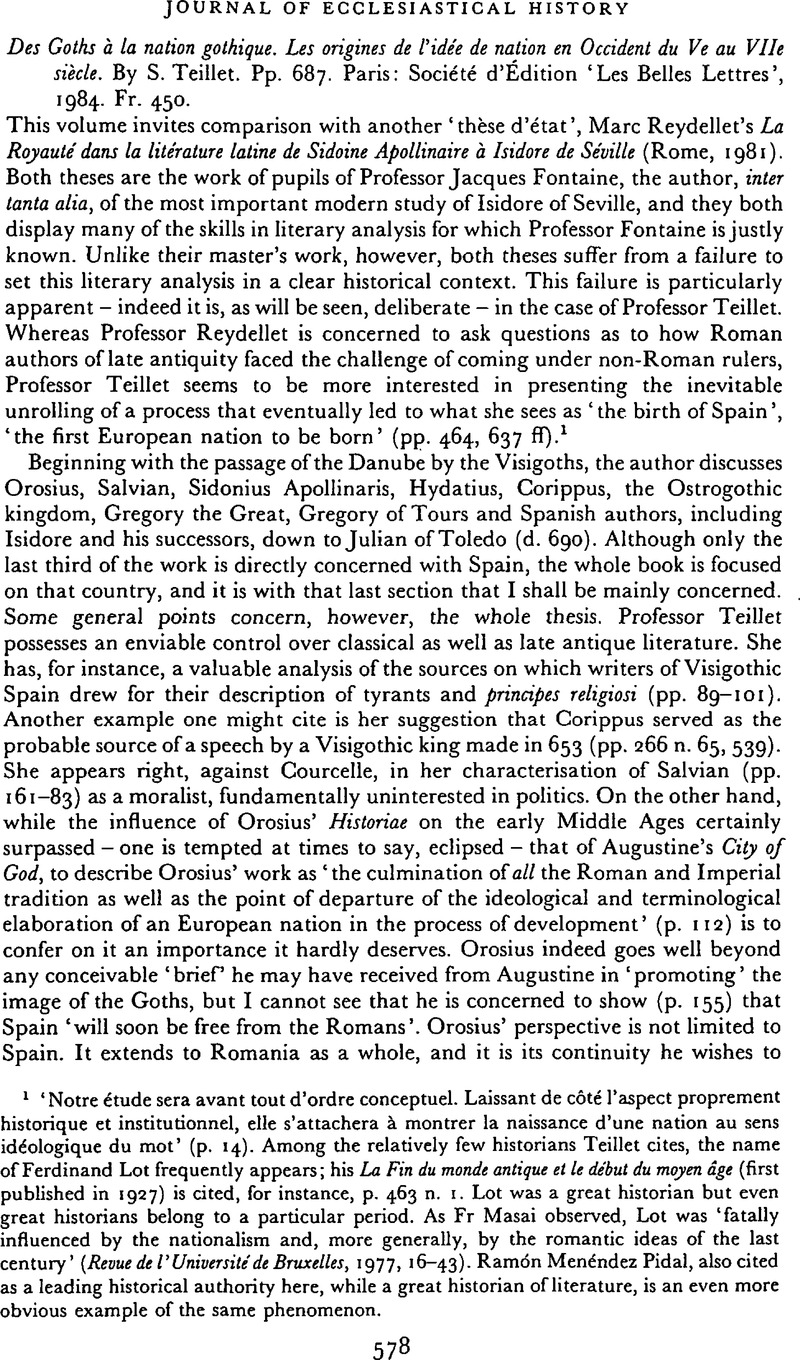Published online by Cambridge University Press: 25 March 2011

1 ‘Notre étude sera avant tout d'ordre conceptuel. Laissant de côté l'aspect proprement historique et institutionnel, elle s'attachera à montrer la naissance d'une nation au sens idéologique du mot’ (p. 14). Among the relatively few historians Teillet cites, the name of Ferdinand Lot frequently appears; his La Fin du monde antique et le début du moyen âge (first published in 1927) is cited, for instance, p. 463 n. 1. Lot was a great historian but even great historians belong to a particular period. As Fr Masai observed, Lot was ‘fatally influenced by the nationalism and, more generally, by the romantic ideas of the last century’ (Revue de l'Université de Bruxelles, 1977, 16–43). Ramón Menéndez Pidal, also citeas a leading historical authority here, while a great historian of literature, is an even more obvious example of the same phenomenon.